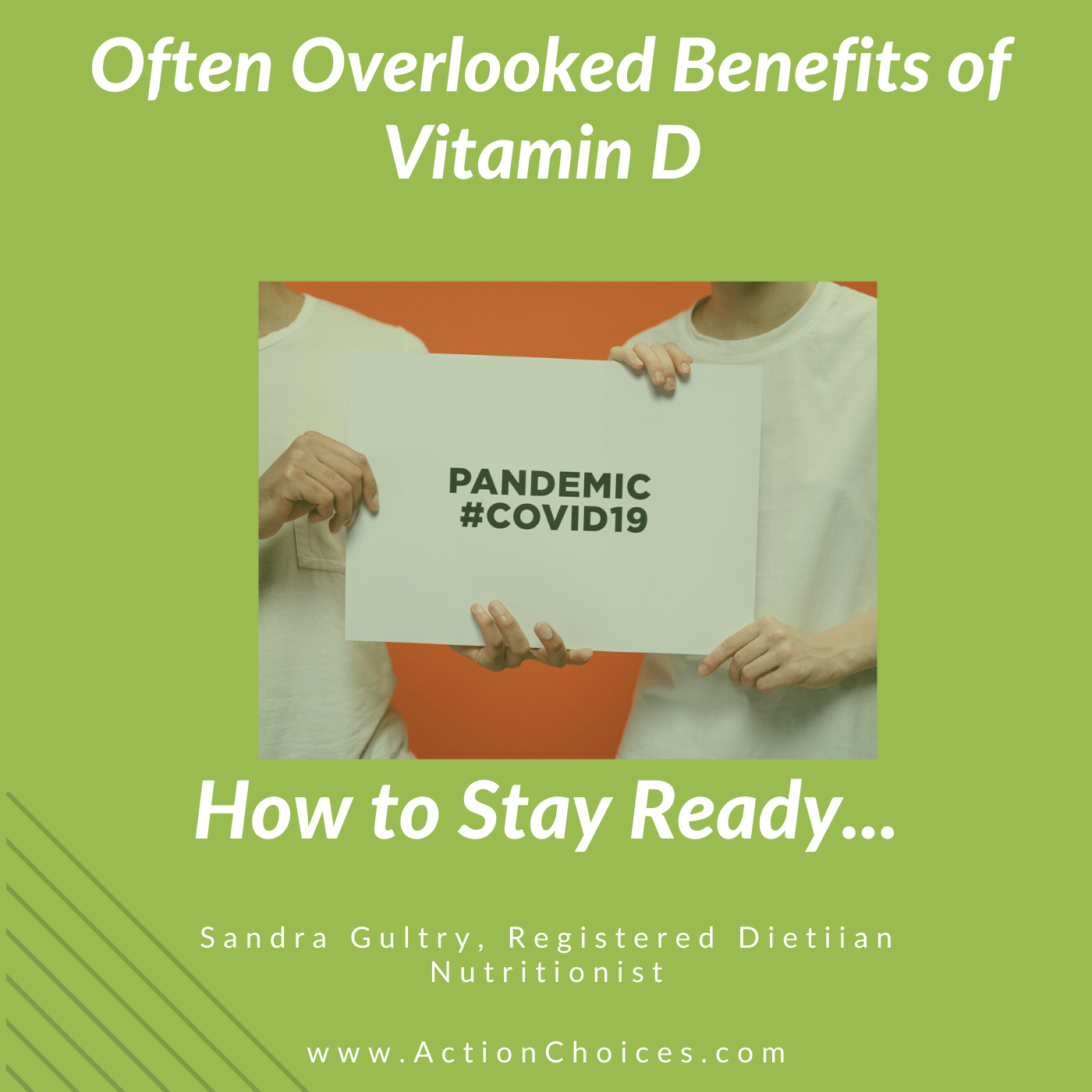No time like the present to get educated on how to keep your body as healthy as possible. Remember, the only way to prevent getting infected by COVID-19 is diligent and good hygiene practices.
Having a strong immune system will help your body “fight the fight” of any illness or virus. The goal is to avoid always trying to “get the body ready to fight”. The goal is to “keep the Body Ready to fight.”
Take a proactive approach rather than a reactive!
What is Vitamin D? Why do we need it?
Vitamin D is a fat-soluble vitamin, meaning that it is absorbed along with fats in the diet and is stored in the body’s fatty tissues.
The primary source of Vitamin D is the sun’s invisible UVB rays.
Vitamin D is an important vitamin because it promotes calcium absorption in the gut and maintains adequate blood levels of calcium and phosphate. Without enough vitamin D, bones can become thin, brittle, or misshapen.
Vitamin D has other functions in the body too! Muscles need it to move, nerves need it to carry messages between the brain and every part of the body, and the immune system needs vitamin D to help fight off bacteria and viruses
Can Vitamin D Lower Your Risk of COVID-19?
It’s important to note that there’s currently no cure for COVID-19 and no preventive measures other than social distancing and proper hygiene practices will protect you from developing this disease.
Vitamin D is necessary for the proper functioning of your immune system, which is your body’s first line of defense against infection and disease.
In fact, the vitamin is so important for immune function that low levels of vitamin D have been associated with an increased susceptibility to infection, disease, and immune-related disorders.
Vitamin D is critical for immune function. A deficiency in this nutrient may compromise immune response and increase your risk of infection and disease.
What are some good food sources of Vitamin D?
Few foods contain vitamin D naturally. Because of this, some foods are fortified. This means that vitamin D has been added:
- salmon
- sardines
- egg yolk
- shrimp
- milk (fortified)
- cereal (fortified)
- yogurt (fortified)
- orange juice (fortified)
It is difficult to get enough vitamin D each day through sun exposure and food alone, so this is a good example of where taking a supplement is necessary
Summary
Aim to get the majority of your vitamin D from foods, fortified foods, and beverages.
Foods contain other vitamins, minerals, and dietary fiber that contribute to good health. In some cases, dietary supplements can provide vitamin D that would otherwise be consumed in less-than-recommended amounts.
My absolute favorite multivitamin and mineral supplement is the:
O.N.E. Multivitamin by Pure Encapsulations. It’s a once-daily multivitamin with sustained-release CoQ10. Made with hypoallergenic, vegetarian ingredients.
This also contains 2,000 IUs of vitamin D3, which are good safe recommendations for the general population. Some people higher amounts to maintain normal levels and this is provided under doctor supervision
CLICK HERE to order. Any questions, feel free to send me an email!
Important Announcement
Due to the impact of the coronavirus, the start date of my new group nutrition program”Jump Start Your Weight – and Learn How to Keep it Off for Good” has been proposed until we are past this state of emergency. Registration remains open and the early bird special remains in effect until a new date is set. CLICK to learn more and register!


